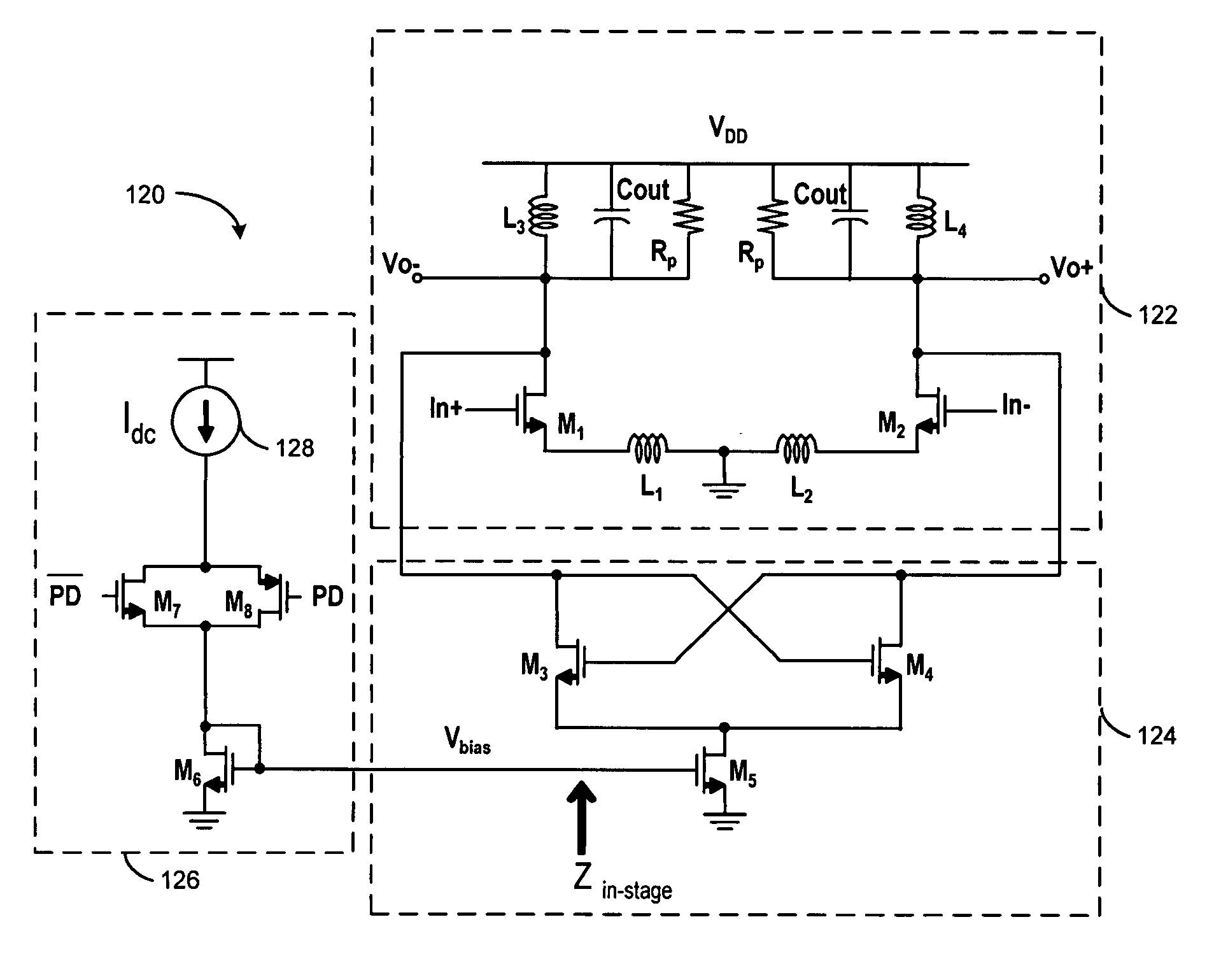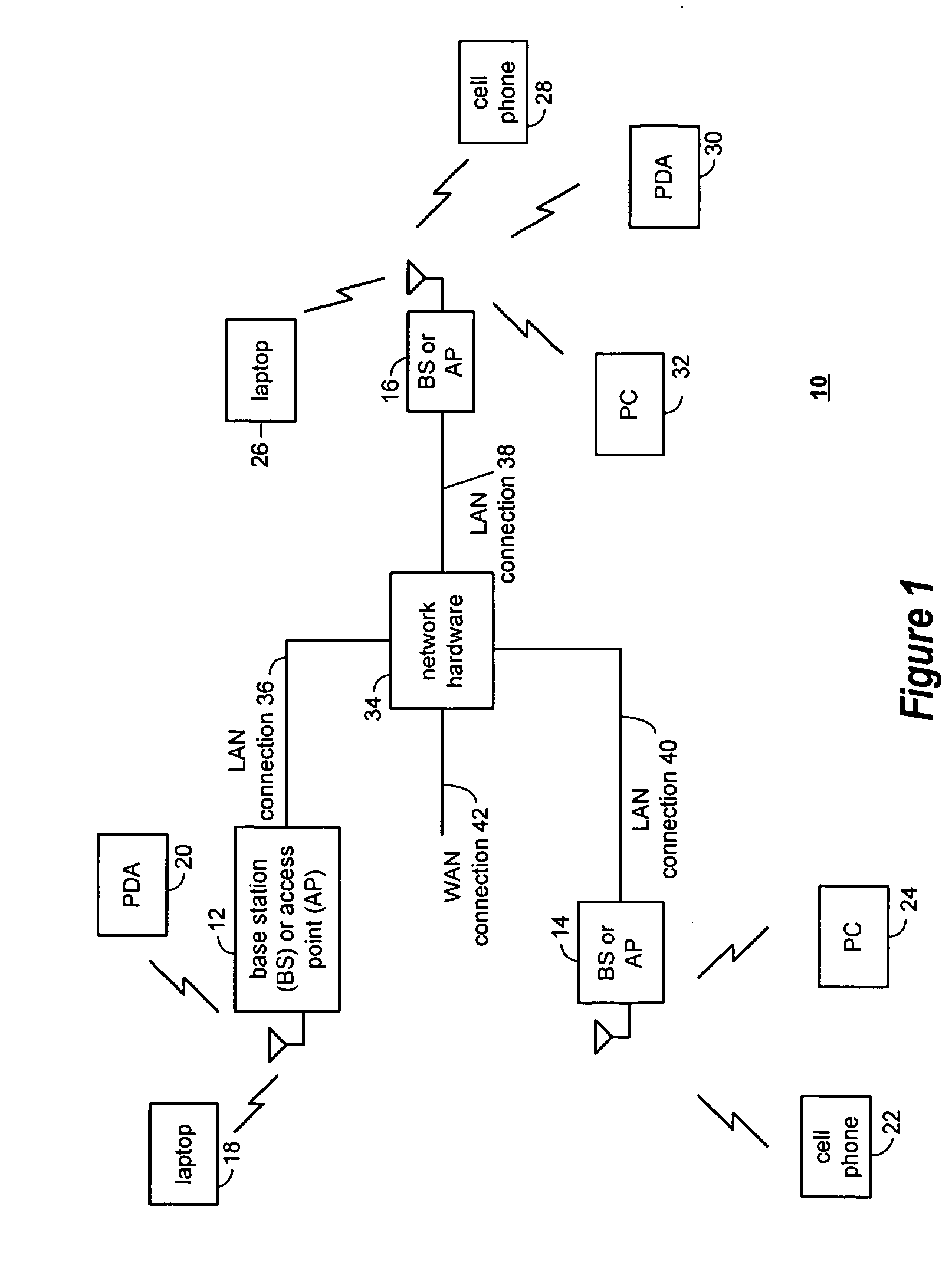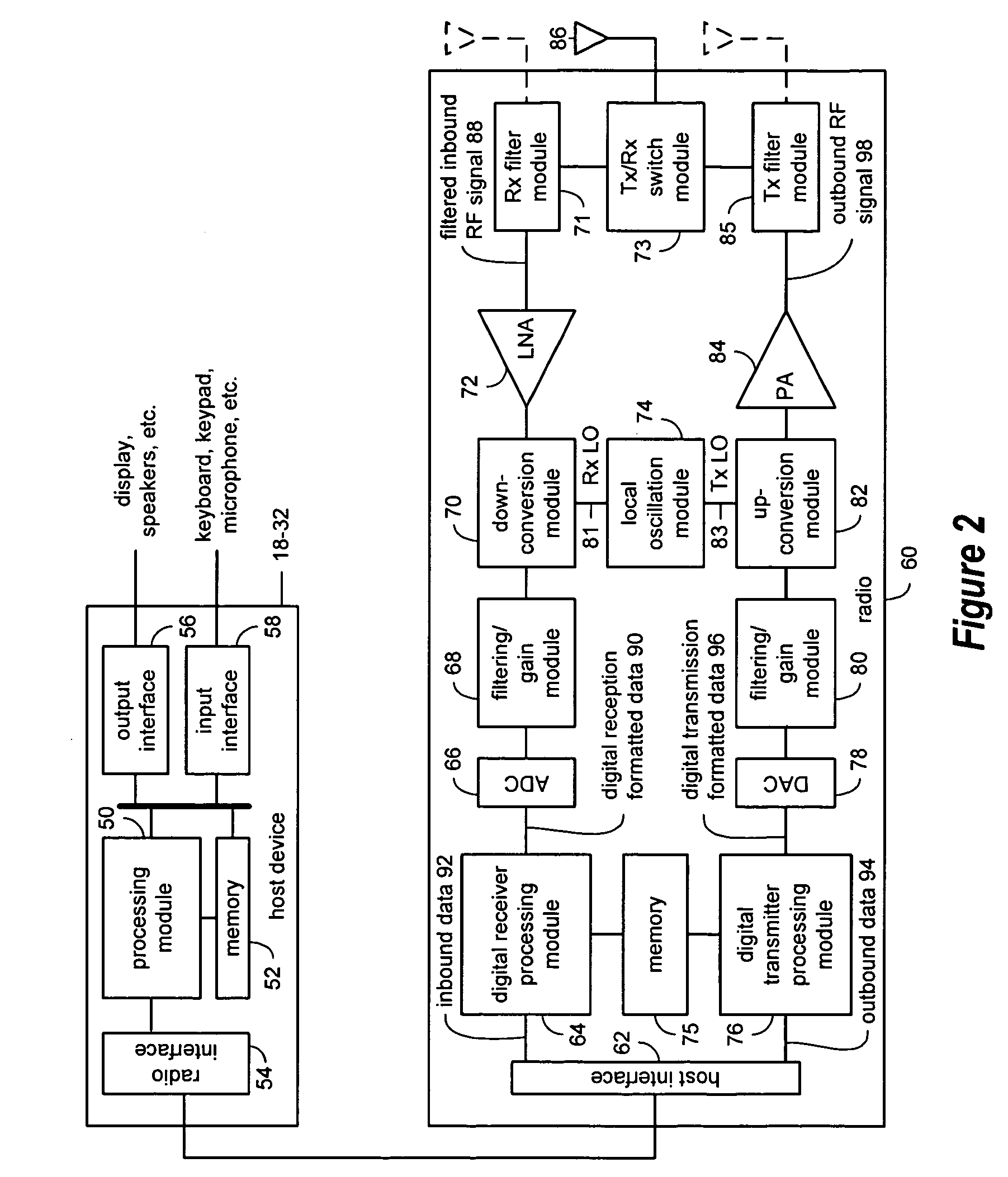Gain boosting for tuned differential LC circuits
a differential lc circuit and gain boost technology, applied in the field of communication systems, can solve the problems of many technical hurdles that need to be overcome before monolithic integration of transceivers, increase component mismatches in the cmos process, and difficulty in designing the device for wireless communication devices
- Summary
- Abstract
- Description
- Claims
- Application Information
AI Technical Summary
Benefits of technology
Problems solved by technology
Method used
Image
Examples
Embodiment Construction
[0022] A method and apparatus are described for boosting the gain of an amplifier circuit by selectively controlling a negative resistance stage connected to a low noise amplifier output tank. While various details are set forth in the following description, it will be appreciated that the present invention may be practiced without these specific details. For example, selected aspects are shown in block diagram form, rather than in detail, in order to avoid obscuring the present invention. Some portions of the detailed descriptions provided herein are presented in terms of schematic descriptions and circuit depictions which are used by those skilled in the field of communication systems to describe and convey the substance of their work to others skilled in the art.
[0023]FIG. 1 illustrates a wireless communication system 10 in which embodiments of the present invention may operate. As illustrated, the wireless communication system 10 includes a plurality of base stations and / or acc...
PUM
 Login to View More
Login to View More Abstract
Description
Claims
Application Information
 Login to View More
Login to View More - R&D
- Intellectual Property
- Life Sciences
- Materials
- Tech Scout
- Unparalleled Data Quality
- Higher Quality Content
- 60% Fewer Hallucinations
Browse by: Latest US Patents, China's latest patents, Technical Efficacy Thesaurus, Application Domain, Technology Topic, Popular Technical Reports.
© 2025 PatSnap. All rights reserved.Legal|Privacy policy|Modern Slavery Act Transparency Statement|Sitemap|About US| Contact US: help@patsnap.com



